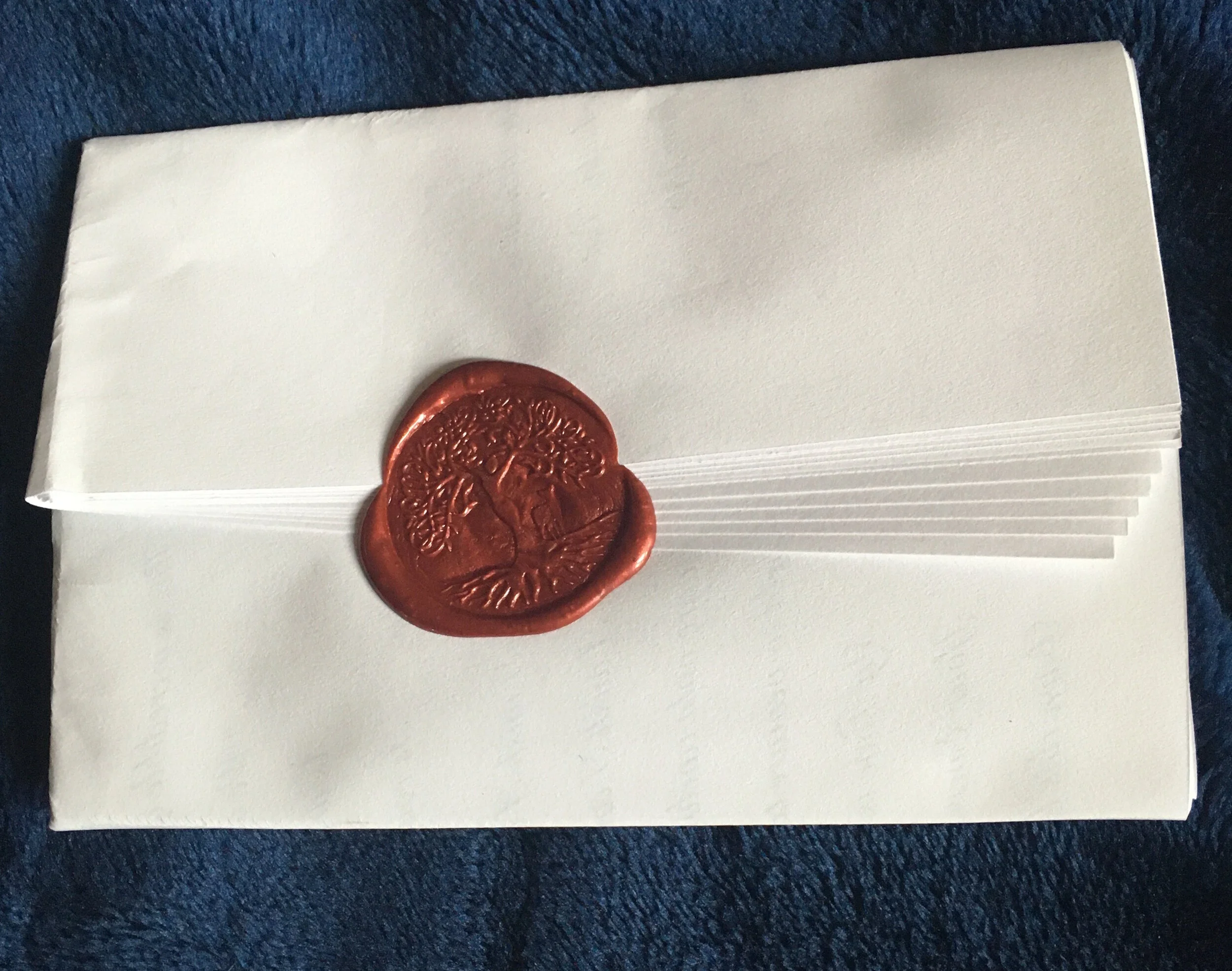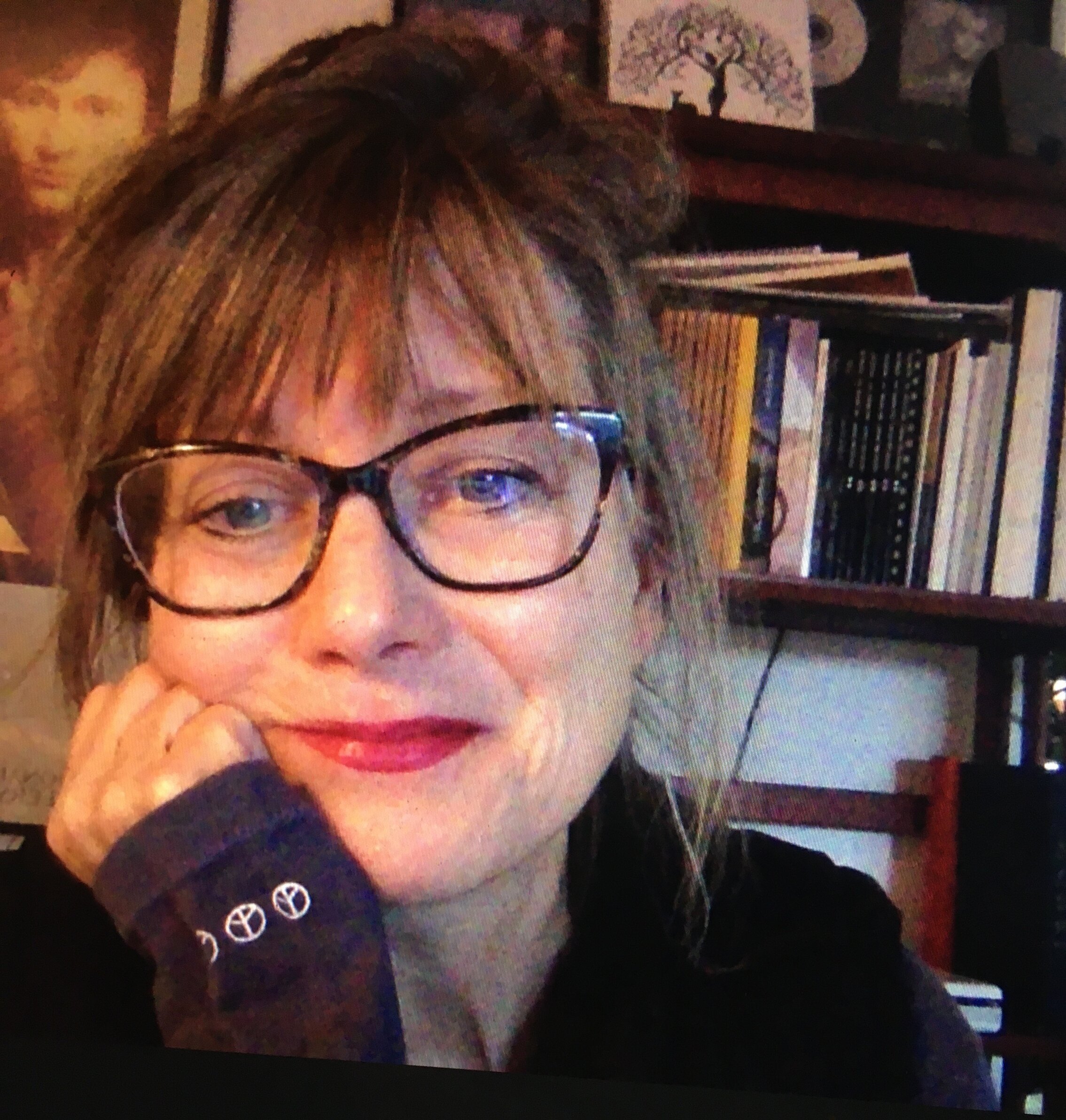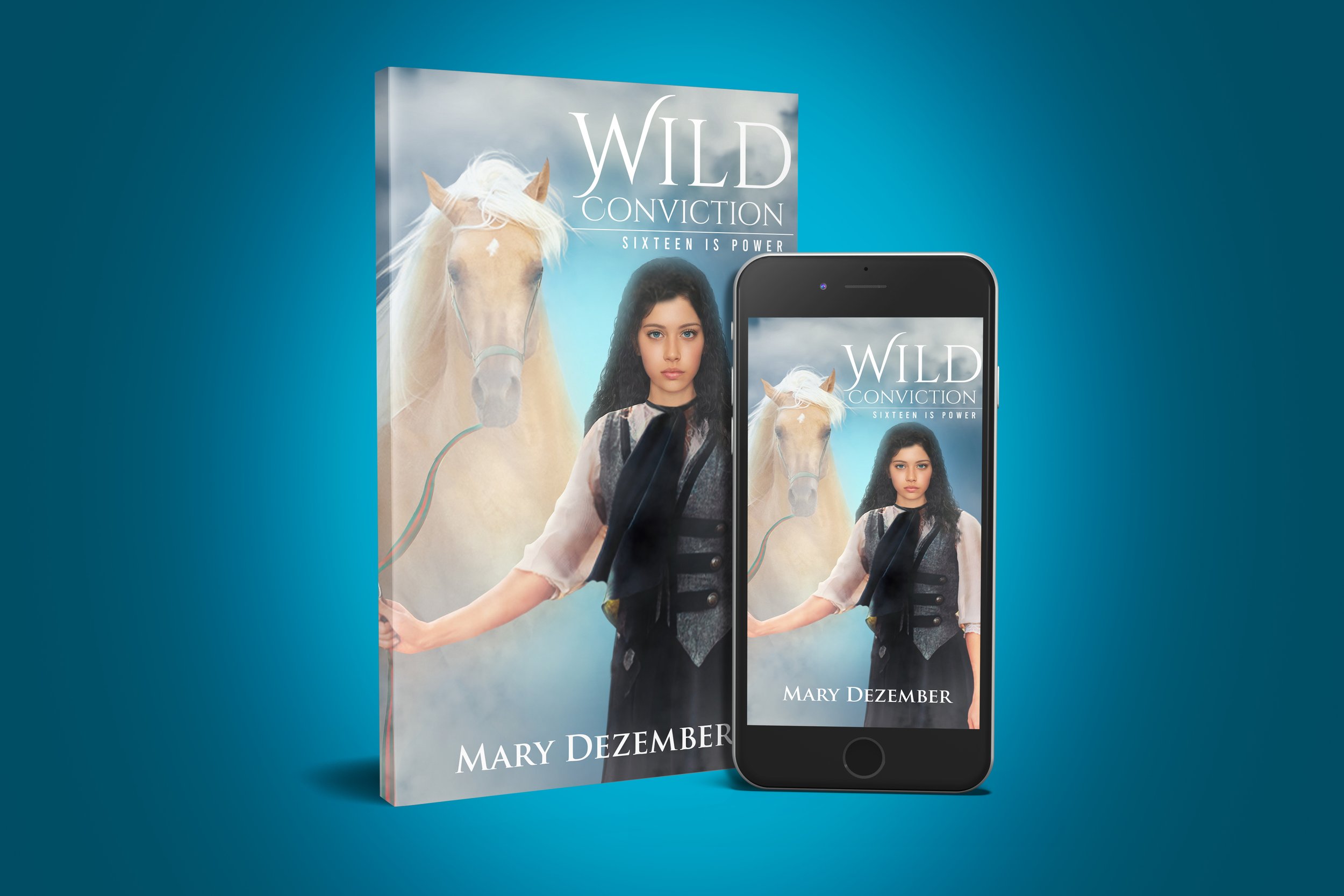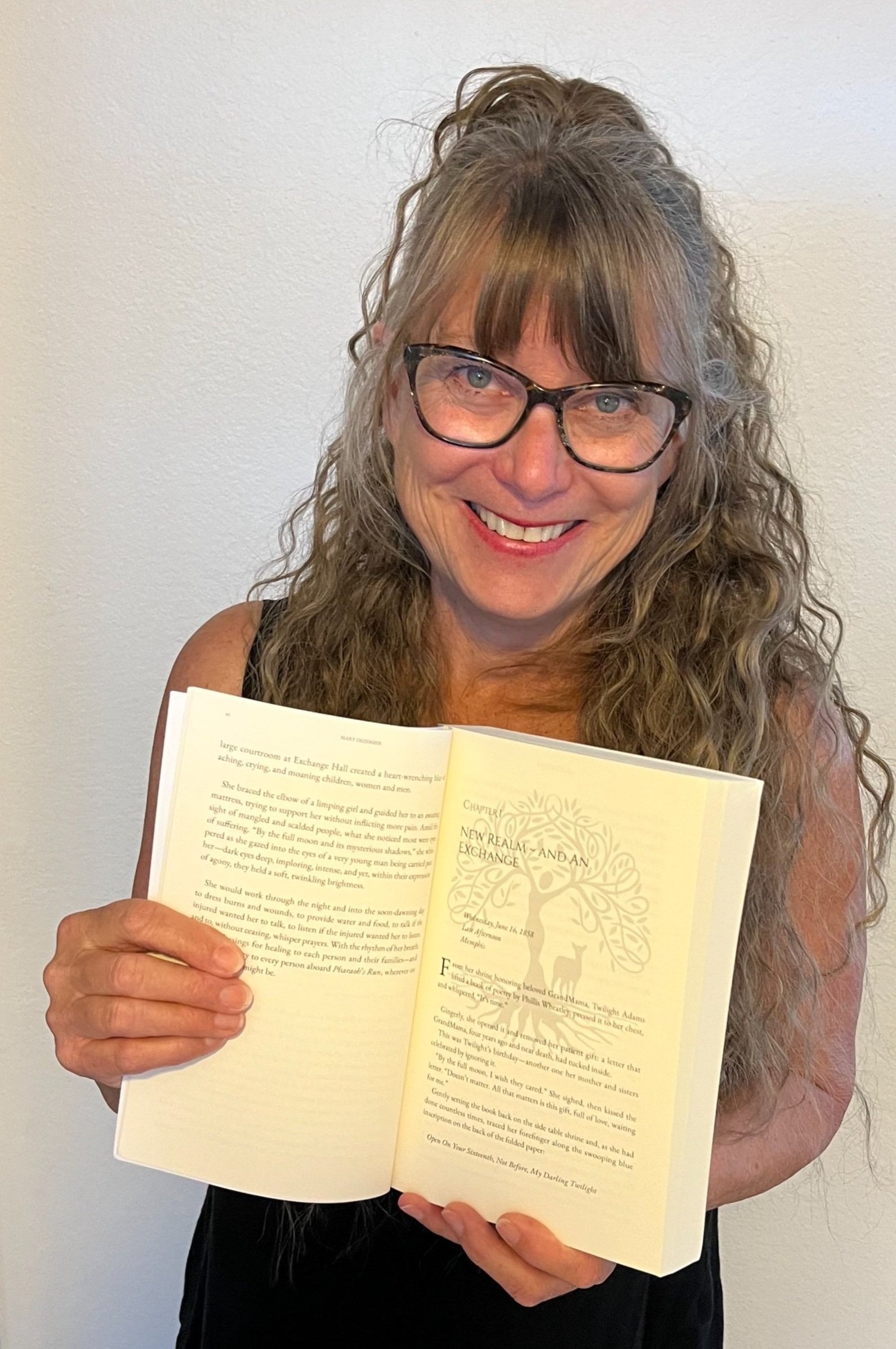What If You Knew Two Magic Words?
You do know two magic words. The words are:
What if?
In a creative life, the words “What if” are magic. They can launch life plans and artistic creation.
What if ____________________________________?
How would you fill in the blank?
The answer sparks an idea. Once an idea is spoken or written, magic begins.
That is because, spoken or written, the answer—the idea or the “plan”—has become material, in the sense that it has moved from thought to the spoken or written word.
Magically, a path or steps appear to make that plan a reality. “Walking” the path, taking the steps are small realities to the “plan.”
This is “Fulfilling a Dream.”
The dream is at the top of the stairway or at the end of the path.
Or, the dream is the journey, and the journey is the dream.
In Real Life:
Here are just two examples of this magic in my own life.
One of my sons wondered: “What if we hike the Grand Canyon?” And we did!
My two daughters and I wondered: “What if we go to Paris together?” and—voilà! In April of this year, the three of us went to Paris and two surrounding towns.
Both trips required planning, of course, and, literally, steps to make them happen. But they did happen—dreams come true.
In Fiction:
The magic of an idea becoming reality also happens with an artistic endeavor, such as a story, poem, artwork, song—an artistic “narrative” or “expression” that explores the “What if” question.
As an author of fiction, I use the answers to “What if” to explore possibilities, both positive and negative. Such as alternate realities or scenarios that could help me to see things differently. Or, such as a scenario that I don’t want to actually live through or be a part of my real life. Or to explore what could never be for me anyway. (Such as time travel. That’s what historical fiction is—and speculative fiction, too, obviously: time travel. Writing stories about other times allows me to “travel” to that time.)
That is what fiction is for. Creating fiction is making a story—a world—outside the reality of our stories and worlds.
Creativity lives in the imagination. Creating is making something outside the reality of our lives.
Anything we make is a creation. It doesn’t exist until we make it. We imagine it, then we make it. That is creativity.
Many, many years ago, I wondered:
“What if I wrote a story about a free girl named Twilight who, while coming of age in antebellum America, stands against slavery?
And what if Twilight discovers what the enslaved people know all too well? Survival isn’t Freedom.
And what if, within this historical setting, I create a scenario in which the terms Rich-tone and Pale are used for skin tone?”
I wondered: “What if Twilight’s epiphany to take her anti-slavery stand happens due to secrets within a mysterious letter from her beloved abolitionist GrandMama, who has a hidden heritage? And from those secrets, 16-year-old Twilight is propelled by a purpose?”
And, “What if the story is sprinkled with Magical Realism?”
And, “What if the story is laced with Southern Gothic?”
I never asked: “What if Twilight finds herself in a love triangle?”
I didn’t have to, because the love triangle of the story emerged and evolved on its own.
Facts and Fiction
Historically, there were free people who did stand against slavery, but, of course, way too few. Free abolitionist women and men did speak out. Some had children. So, could the few have included a 16-year-old free female? If her family believed as she did, maybe a girl or young woman spoke out in her home. But would she have spoken out publicly? Given the time period, it seems unlikely. But, it’s possible. What if?
My novel is richly historical from my work in researching antebellum America and finding facts. However, the result is fiction. It is the result of the steps I took in creating characters and writing the fictional events of their lives.
(There are actual historical figures who are “talked about” by characters in the novel, historical figures who were “there” at the historical time and place mentioned, but their “part” in the novel is, of course, fictionalized. Many are literary figures. Some became literary figures after the years of my novel, 1858 to 1861. See how many historical figures you can find as you read the story.)
Tagging Along & Connecting with the Characters
Fiction can engage us as a source of entertainment. But, to me, fiction is more than entertainment. It is about connection.
As readers of fiction, we get to tag along on the adventures and lives of the characters, feeling involved not in our actual physical realm but rather in our heart and mind realm.
While they face jeopardy, we are safe.
While safely snuggled in our favorite, comfy reading chair or in our reading nook—with a cup of tea, coffee, or hot cocoa nearby—we get to relate to the characters with a human condition connection, which is of the heart and mind.
We make connections with some of the characters because they, like us, have basic human emotions, desires, needs, and “characteristics.”
Fiction “Realized”
Filling in the blanks and imagining the “What ifs” as the story ideas progress can be fun.
However, it is the fiction author’s work, even a duty, to weave together the “what ifs” of the story to make it convincing. Even though a story is fiction, it must seem “real” to readers. This can be achieved by the characters and their actions engaging us with their humanness. Thus, we as readers relate to fictional characters due to the human condition we share with them.
These human condition aspects span time and space.
No matter when or where people live or have lived on planet Earth, we share human condition aspects, though, we might not share all of those aspects.
Some of these basic human aspects—emotions, desires, needs, and “characteristics”—can include:
wanting love
giving love
being upset
being angry
facing conflict
facing dilemmas
facing adversity
looking for solutions
overcoming problems
being part of community
wanting to be accepted for who we are
finding our own identity
having a purpose
wanting the world to be a better place
being resilient
surviving
being free.
However, some fictional characters have negative, even terrible, desires, as happens in reality. These antagonists grab for power. They live for greed. They can be mean, cruel. And worse. We don’t want to share their faults, failings, and corruption.
In real life, people with those characteristics might cross our paths, confront us, and try to control us.
Because, when reading fiction, we “live” vicariously through heroic characters, witnessing our protagonist and other brave characters confront or evade the antagonists can feel satisfying.
Some of the characters are dear animals, loyal and loving. Even magical in ways. They are sometimes funny. Sometimes protective. Sometimes heroic. Just like my animal friends have been for me. Loyal, loving, magical, and yes, even heroic. They care for me. They make me laugh.
Fictional characters, when they “embody” human condition emotions, seem real.
The characters of Wild Conviction are real to me, as if they stepped out of the past and into my life and said, “Write our story.”
Because it took several years for me to complete the novel to a place where I thought it was ready to release to the public, my heroic characters, at times, became a bit demanding. They wanted me to focus only on them and their story.
They were restless to become “real”—to be “seen” and “heard” in our world. I definitely wanted their story to be in our world. And I wanted to know how readers would feel about them. So I focused and made it happen.
Their story has been out there for about 100 days.
Now, readers can safely be a part of their story and find in them new “friends.” And with our new friends, we also face their “enemies.”
Because they are heroic, some of our new friends are role models.
I am so grateful to T. A. Niles for his words about Wild Conviction in T. A.'s Poetic Expressions-Plus:
“Mary Dezember has created a tour de force featuring a strong young woman who displays integrity, independence, empathy, and a commitment to equality—a necessary role model for today’s world and any other.”
As readers, we do not have to take the chances that the role models of the story do. We do not have to take such risks with our lives.
But we can connect to their desires and commitments to create a better world.
Their story is getting great reviews.
If you haven’t read Wild Conviction yet, I hope you do.
Here’s where you can read the reviews (and add your own, if you have read the novel and haven’t written a brief review yet):
Amazon: https://www.amazon.com/dp/B0CD8DT5B9#customerReviews
Goodreads: https://www.goodreads.com/book/show/195459456-wild-conviction
You can discover how your “magical gifts” relate to a character or two in the novel by taking my quick personality quiz here:
But, you will find out much more about the characters and how you relate to their basic human emotions, needs, desires, and characteristics—even though they are “living” in antebellum America—when you read Wild Conviction.
Oh, and now:
What if _________________________________________?
Enjoy filling in the blank and exploring your answers to these two magic words.
Here is an earlier post with some photos and haiku about my time in France with my daughters, a dream come true: https://www.marydezember.com/blog/2023/4/13/light-magic-amp-april-in-france
Mary Dezember. Author of stories and poetry as portals to possibilities.
Find your magic.
About the Blog Author
Mary Dezember, Ph.D., creates stories about possibilities—inspiring champions to find their magic and create a new and better day.
She believes it helps to make life magical, even if that means simply cuddling a cat, donning a tiara, talking with a unicorn, channeling the muse, or reading a good book.
She lives in the Land of Enchantment.
A lover of the beauty and power of language, she states: “We spell words and, arranged well, words can put a spell on us.”
She is seen here with her novel, Wild Conviction: Sixteen is Power, (Brilliant Moon Press), a richly historical, coming-of-age, socially conscious, epic adventure with touches of magic and love. It examines the historical basis for contemporary social issues and the rite of passage to identity, including the hero’s emotional and intellectual quest.
Her publications also include several non-fiction essays and articles, fiction, and two books of poetry: Earth-Marked Like You (Sunstone Press) and Still Howling (CreateSpace Independent Publishing), with the title poem being First Place winner of the Best Beat Poem Contest, 2016, sponsored by Beatlick Press.
She earned her PhD in Comparative Literature with an emphasis in Comparative Arts from Indiana University. In addition to being an author of novels, she is a poet, Professor Emeritus of English at New Mexico Tech (New Mexico Institute of Mining and Technology), and a scholar of the arts, literature, and writing.
Photos by Mary Dezember.
These images are not photos: magical stars (from Canva); book with magic (from Canva); blanket, phone, and cocoa (created with Bookbrush); What if? video made on Canva; blanket, phone, and cocoa made on Bookbrush.
Copyright © 2023 Mary Dezember
Dezember LLC











